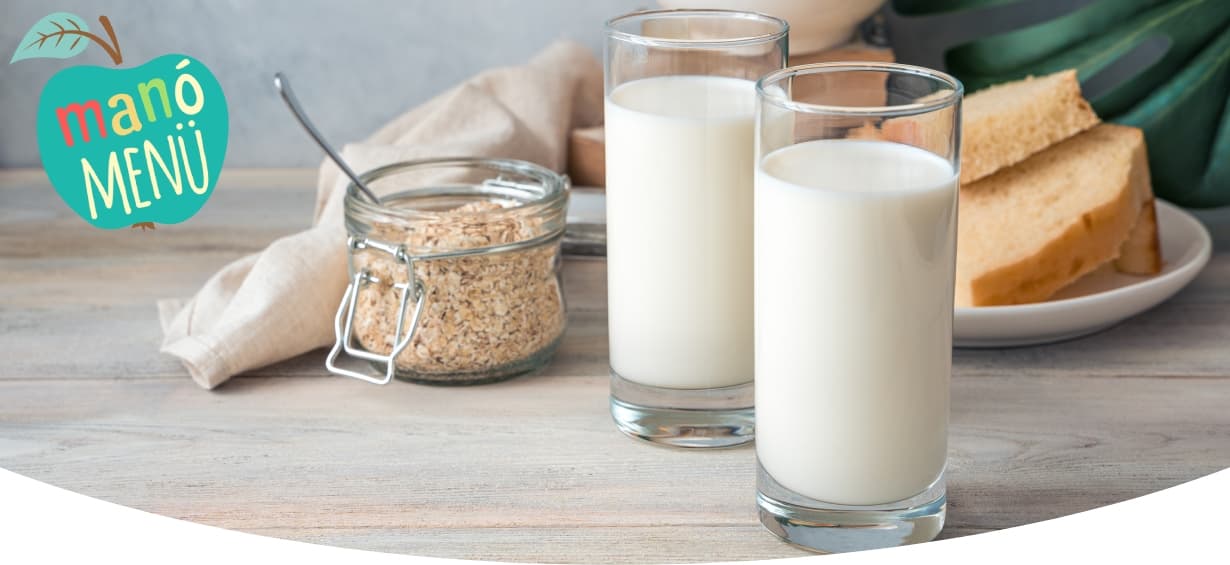
When can children first have milk?
There is a lot of misinformation circulating on the internet and often among professionals who assist parents about when babies can first have milk. The reason for this is partly because the feeding guidelines for healthy infants (0-12 months) in our country were only recently updated (2019), and partly because articles written before this update are still available.
The most common question from parents is when their child can first have milk. It is important to know that infants can consume dairy products as solid food before they turn one year old, but the type and preparation of the dairy product are very important. Dairy products such as full-fat yogurt, low-salt cheeses, kefir, or cottage cheese, and even butter can be given after 6 months but before 12 months, in age-appropriate amounts, typically following the introduction of meats. If a cooked dish contains a small amount of milk, the baby can have it too, but under no circumstances should it replace breast milk or formula intake. This can often be confusing for parents, as the general recommendation is that cow's milk or milk from other animals should typically be offered only after 12 months of age.

It is important to treat milk and dairy products separately!
Since cow's milk as a beverage is consumed in much larger quantities and can often partially or completely replace breast milk and formula intake, introducing it before 11-12 months of age can lead to problems such as iron deficiency anemia and other gastrointestinal disorders. This is because cow's milk is nutritionally incomplete, low in iron, and contains proteins that are difficult to digest. Interestingly, since yogurt and cheese are fermented during processing, the proteins that are harder to digest are partially broken down, making it easier for the baby to tolerate them.
When can infants drink cow's milk?
Most pediatric organizations worldwide recommend waiting until the baby's first birthday to introduce cow's milk as a drink, as infants' digestive systems do not tolerate cow's milk protein well in large quantities. Compared to breast milk or formula, cow's milk is nutritionally incomplete, meaning it does not provide all the healthy fats and nutrients that a baby needs for balanced development. Although cow's milk forms the basis of most infant formulas, the structure is modified in formulas to be very similar nutritionally to human milk.
However, dairy products such as yogurt and cheese can be introduced as early as 6 months. There is no need to wait to introduce these nutritious foods, and many dairy products, such as Greek yogurt, are easily tolerated and digestible.

Parents often wonder if infants and toddlers need cow's milk at all?
Milk is generally a great source of protein, fat, carbohydrates, zinc, vitamin B12, and especially calcium and vitamin D. The good news is that many of these essential nutrients and vitamins can also be found in various other foods. The most important nutrients found in milk, such as calcium and vitamin D, can also be found in most yogurts and cheeses, as well as plant-based calcium sources like sesame seeds, almonds, broccoli, other dark green vegetables, and tofu or other soy products, which are often fortified with calcium during production. As for vitamin D, there are not many foods that naturally contain it, but fatty fish, egg yolks, certain mushrooms exposed to sunlight/UV light during growth, and liver naturally contain vitamin D.
If your child is 12 months or older, their growth data falls within the normal range of the percentile chart, they have no health issues or allergies that could affect their nutrition, and they consume a properly varied diet of fresh vegetables, fruits, and grains that contain the aforementioned essential nutrients, trace elements, and vitamins, then cow's milk (or any milk or drink, whether plant-based or otherwise) is not necessarily needed. However, we always recommend that if you want to completely avoid animal-derived milk, you should definitely seek the support of a pediatrician or nutrition expert to ensure your child receives optimal nutrition.

